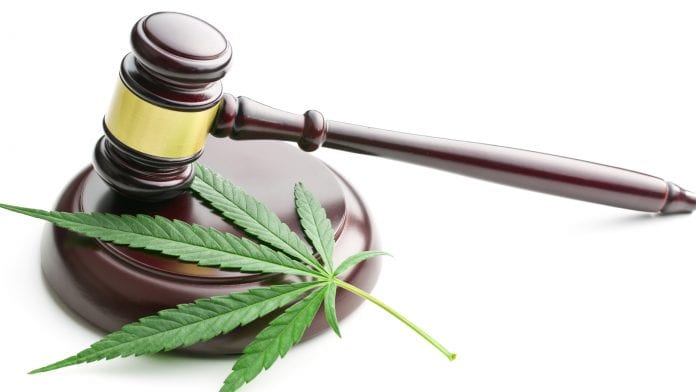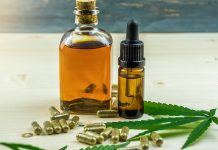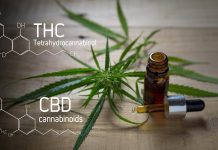
Cannabis campaigner and Oaksterdam University President Dale Sky Jones talks to MCN about cannabis legalisation, education and civil rights.
Dale Sky Jones led the 2010 campaign for California’s Proposition 19 ballot initiative, which called for the legalisation of a number of cannabis-related commercial and regulatory activities. Since 2012 Jones has been the President and CEO of the USA’s first cannabis college, Oaksterdam University.
MCN caught up with Jones at the International Cannabis Business Conference (ICBC) in San Francisco, which we were privileged to attend as a media partner.
The Proposition 19 campaign in California sparked global debate in 2010. Could you provide an overview of your involvement in that? What led you to essentially create the blueprint for the first statewide legalisation effort?
The Prop 19 campaign ignited the debate for cannabis policy reform. Having first and foremost a mother discussing cannabis policy reform was shocking; and the combination of having [chief promoter] Richard Lee in a wheelchair and a mom, a spouse – it became the campaign heard around the world. It was the first time that folks could have the conversation across the coffee table or the dinner table. Families could have the conversation as a policy discussion rather than a passionate one; and so having the international press, not just the national press, this really became a sweetheart issue in 2010. It was an off-year election, it was not presidential; and some would say that it was a mistake to not go during a presidential election, but I would argue that we never expected to win in the first place. What we were doing was starting a conversation so that during the next presidential election we could make that change; and had we not gone in 2010, 2012 would never have happened.
Beyond that, I also need to give credit and homage: there was a tight team that created this blueprint. Richard Lee was the person who put his money where his mouth was and said: we’ve been all talking about legalising, but someone’s going to have to pay for a statewide campaign. And it was his brilliance in choosing my now husband – we got married during the campaign – as a co-proponent, because Jeff Jones had fought for medical rights. It changed the world, it changed the conversation; and I just want to make sure that they also get credit for that. But I do believe that our campaign was a blueprint for the campaigns to come – the cops and moms [approach] is what everybody else led with. It was very effective.
European terminology still refers to ‘recreational’ cannabis, whereas you are advocating for the wider use of the phrase ‘adult use’, which is increasingly common in the US. Do you think that this kind of ideological paradigm shift is necessary for a wider acceptance of cannabis?
During the Prop 19 campaign we had several pollsters and concerned political advisors wanting us to call it marijuana. And we said: yes, but marijuana is the racist term used to frighten people into voting against [something] they were actually familiar with and approved of, by calling it something else: what is this crazy marijuana weed coming over from Mexico, it’s not the cannabis that we already know and love and use medically? They said: people might assume that you are trying to trick them by calling it cannabis instead of marijuana. The argument was that cannabis is the name of plant, and therefore let’s just refer to its scientific name.
Meanwhile, you still have organisations that are based around the word ‘marijuana’ – the National Organisation for Marijuana Law, the Marijuana Policy Project (MPP), Marijuana Majority – they are all great organisations, but they’re also very hung up on this word marijuana. In trying to insist upon the scientific term, I now approach it that if I’m talking about the failure [of prohibitive legislation] I refer to it as marijuana prohibition, the failure of the marijuana war. If I’m talking about the new future, it’s cannabis policy reform.
In the campaign, I was talking to people about controlling, taxing and legalising cannabis; and the opposition was screaming: save the children; and I’m saying yes, let’s do. By controlling who decides what is sold and to whom right now, you’re leaving processing, sales, manufacturing and cultivation in the hands of the people that do not ID our children and could give a hoot – they’re buying guns, not books, with their dollars.
When you look to the word recreational, it kind of breaks my heart because now when you look it up, both pop up; but a few years ago you could type in the word recreational into Google and you know what popped up? Fun for kids. Recreation is fun for children. I’m a mom of three now – I was pregnant with my first during that campaign – and when I’m looking for fun, I’m typing in the word recreational for children. And that soccer mom in South Dakota, even if she agrees you shouldn’t go to jail for this, when she hears ‘recreational’ she thinks of her 12 or 14 year old recreating with cannabis. It’s our corporate responsibility as an industry to not make this sound fun for kids, but it’s also in our best interest to not freak out the voters [to a degree where they] vote against what’s in their best interest out of fear; [we can call it] adult, it can be retail, cultivation can be commercial; but can we not call it recreational? It’s not just if you’re sick or dying, or if you’re just trying to get high and have fun. We’ve already established now, just with CBD, that this is not just for sickness; it’s for wellness. It’s not just for recreation and fun. At the end of the day, it’s not helping anyone to call it recreational. Calling it adult use means it’s for when you’re either sick or you’re grown up, pick one: it’s not just for going off and having fun with.
[Cannabis represents] a harm reduction opportunity in our own households. I remember being in households that had lots of liquor; and my friends borrowed from the liquor and then watered it down to get it back up again. The parents that have pharmaceuticals, oxycodone, Oxycontin, Valium: your kids are trying it. Bring it back down to a two year old level, you have an aspirin bottle in your cabinet. You know how many kids go to the hospital and die every year for the aspirin that they ingest? So if I’m doing everything I can to lock away my cannabis medicine – I’m keeping it on high shelves; and keeping locked boxes; and keeping it behind closed doors; if you’re hiding it, hide it with the spinach, not the candy – I’ve discovered having three kids now that there is no keeping them out of anything. All you can do is teach them what to do with it once they find it and hope that they listen. But ultimately, if I have a young one who’s going to experiment with what they find in the house, I would rather them have an edible than a bottle of aspirin. I would rather them discover cannabis than opioids.
As a harm reduction technique, the most dangerous part of cannabis has always been getting caught with it, not what it does to you; so let’s have that conversation, son, that this is not appropriate for you until you’re old enough – but in the meantime, let’s not destroy your future, make it impossible for you to get housing or an education. You can rape and murder someone in this country and get help from the government, but if you’re busted with some weed, then you’re disallowed from getting any of those scholarships.
As the Executive Chancellor of Oaksterdam University, what changes have you witnessed in cannabis education? How does the university adapt its curriculum to the fact that the industry evolves very quickly?
It’s a lot of stops and starts – we’ll get a certain amount of forward momentum and then crash into a wall and roll backwards by two and a half years – and it’s also very geographical. There are certain places around this country and around the world that have really evolved their cannabis policy, supply chain and compliance expectations; and they’re sitting right next to a dry state where you’re shackled to give birth to a baby and your children are taken from you the moment they discover cannabis in your life.
I’ve watched who comes to the school and why they come to the school change over time: that is very dependent upon federal policy, recent federal action, law enforcement action. After our federal raid in 2012 it was as though an ice bath was thrown on the industry, but then in December of 2012, Colorado and Washington legalised.
We’ve managed to largely provide that ‘all things to all people’ for many years. because regardless of your socioeconomic background or schooling or your age, folks coming to this are all newbies. There are so many women getting in, where for a long time I think women held back from involving themselves. People say: I saw you [campaigning] and realised you’re just like me and that I could do this; there is a moral imperative here and we can do it differently.
For so long, if you were white it was medical and if you’re not it’s criminal. The brutality is real and the numbers are there; and this is where the frog boils slowly: you hear about the most egregious [cases] on the news, but what you don’t care about is the tens of thousands of young black boys who get shaken down and frisked and tossed into jail for a weekend, and then because they can’t afford it, now they have a bench warrant. And the bench warrant gets served and now they’re in jail, and now they can’t bail themselves out of jail; they lose their job, they lose their school, they lose everything else. These small slow things happen that entirely affect the rest of your life.
Prop 19 did something else that was really important, that no other legalisation [campaign] has done since: we forced the governor to sign a bill that he had vetoed four times before that had already passed both houses in California, [which was] the largest decriminalisation bill in California history. The following year, the 2011 and 2012 criminal justice reports showed an 87%, drop [in arrests] – that’s nine out of 10 that are not arrested; and when you juxtapose who’s likely to be criminalised – usually youths, usually of colour – nine out of 10 just didn’t go to jail that night. In other states we only legalised for 21 and up, [whereas the California bill] decriminalised no matter how old you were. In these other states now they’re criminalising the 19 and 20 year olds, because that’s who’s left to go after – really, America? Is that what we’re trying to do, go after dumbass 18 year olds who you already know are dumbasses and are going to do dumbass things?
In terms of adapting our curriculum to the evolving industry, we have recently expanded our business programme: the industry has evolved, so we’ve added different aspects to our horticulture programme with respect to outdoor cultivation and compliance: for a few years we offered outdoor and nobody showed up because it was banned everywhere. The horticulture seminars are always bringing in the newest information, for instance about LEDs and lighting: we’re now realising that all these expensive lighting programmes are just a waste of time and money; [all you need is] just nice bright white light. You can spend any amount of money if you want to, but you don’t have to; the Oaksterdam method is doing the most you can and getting the best return on the investment for what you’re trying to do.
We completely rewrote the business programme this year – it’s taken us about a year and a half to entirely overhaul our business programmes, so we now have the business of cannabis, which goes through the overview of everything; and a two day course on workforce development, [training students on] how to be a budtender, that frontline entry level position; and then there will be more advances coming out at the end of 2020 in the supply chain and compliance. We’ve been working on going online: horticulture has been online now for about a year and a half, and we’ve just launched business this month. [The remote learning capability is] for anyone in the world, as well as for the folks that can’t get into the US – about every seminar we have someone turned away because they do or say the wrong thing or somebody looks up their Facebook at the border and [says]: you’re out of here.
We have been doing scholarships for veterans and patients for years. For the last couple of years we’ve been doing a lot of equity scholarships; and I’m proud to say that [Oaksterdam alumnus] Shawn Richard is the first black equity owner here in San Francisco. We’ve shouted from the mountaintops for years that this is not about legalising cannabis, this is about the most important social justice civil rights revolution; and so finally the policy is starting to catch up – they’re screwing it up, but they’re trying.
At Oaksterdam, in addition to adding new programmes to meet the needs of, for instance, hemp and CBD tech questions, we’re also working with a lot of government [bodies]; trying to help the regulators understand, and also helping cities and municipalities train the equity applicants that they’re trying to put through. There are a few exciting things on the horizon there; and I feel Oaksterdam as an institution is starting to evolve, to get to that next level of what our students need post-graduation. We’re trying to figure out some strategic partnerships for job acquisition and hiring, because so many of our graduates are either looking to be hired or looking to hire: these are like-minded individuals who have self-selected to go through a programme; who also believe in giving back to the community; and at the same time they realise that actually strengthens their bottom line competitively.
I am also trying to save the world, so if we can do both things at once – making money while you do good – everybody wins. This is a lot of what the school does: we feel a moral imperative to teach you what you need to know before we will teach you what you want to know. Most people don’t know what to ask, and so we want to make sure that you understand your rights, your responsibilities and your risks first and foremost; and then we’ll teach you how to grow, how to manufacture, all that other good stuff. [It’s imperative to learn] how to have successful law enforcement encounters, because if you are black in Missouri, you’re still more likely to have that law enforcement encounter getting pulled over in your car than you ever are with a regulator at your door. We will have an investor in the room who is growing [cannabis] in the shadow of the prison that somebody else in the room’s brother died in: that happened just three months ago, I’m not making this up.
There’s still a lot to do. Part of what I’m focused on now is descheduling, because [that is] the only way to legalise research; the only way to allow our elders to finally get off some of these pills and participate with something that they’re afraid of breaking the law; to finally allow veterans access for TBI [traumatic brain injury] and PTSD. Right now everything is geographical: whether or not you can save your seizing baby has to do with what state you live in. We can take the teeth out of the criminality and we can allow for small business to fight it out in the free market; but Florida is a great example where if you only allow people that have been in the nursery industry for 30 years to even apply, you’re not going to get any women, you’re not going to get any veterans and you’re not going to get any people of colour. You must be a rich white guy to even apply to get into the industry.
We are ensconcing what we have dealt with in the United States with the Jim Crow laws and that civil rights revolution, where people marched to say: this should not be a crime, why are we putting people in jail for loving someone of another colour? One of the things that we teach at Oaksterdam is jury immunity, that as a voter and as a juror you have the power to not just judge that defendant sitting behind the table, you’re judging what brought them there. They don’t explain this in jury instructions, but you can hang that jury, nothing will happen to you. For some it’s civil disobedience, but we’re also teaching folks how to be civilians and how to participate in what’s going on, and teaching people their power. I learned through the Prop 19 campaign: I believe in facts and figures and research and science, but it turns out that none of that means anything in politics. Folks will not vote in their best interest. The part of the brain that feels is not connected to the part of the brain that speaks; and so folks can articulate one thing and then engage in entirely different behaviour, meaning that you poll someone before a vote, and then they go and vote against their own best interest anyway.
It really is about teaching people to tell their story; because I learned the way that you change hearts and minds is that you show people that it is worth it, and you show them that they can do it. And then you just hand them their power in the form of a mirror: tell your story and people will believe you and you will change hearts and minds. These facts and figures, nobody cares: the books are cooked, the facts are fake, the news is false.
I’m excited for the future of Oaksterdam; I’m more excited for the future of my alumni, because every room I walk into they’ve done something amazing. At our graduation two days ago, I had a woman who was on a San Francisco equity scholarship; and she just got approved. As I was walking out, she told me: she was on the streets as a homeless crack addict for years, lost her children, lost her family; but came back to enough to go to school, to come to Oaksterdam, to get involved with the success centre – and now she’s about to open a business, she’s re-established relationships with her family. It’s one of many, but it’s just that one.
Dale Sky Jones
President and CEO
Oaksterdam University
This article appeared in the second issue of Medical Cannabis Network which is out now. Click here to get your free subscription today.







